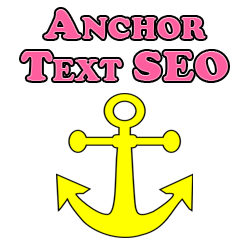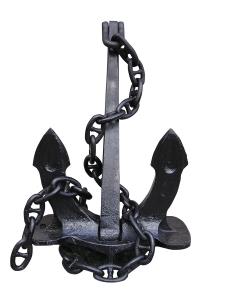Anchor text has always been an important aspect of SEO. Making a hyperlink out of text which relates to the page that link is pointing to is a surefire way of telling the search engines what that destination page’s content is about and will help to rank it accordingly. This applies to both with internal and external links.
Anchor Text SEO
But I’ve talked about over optimization in the past, and using the same anchor text over and over is an example of said over optimization which ultimately looks fake, non-organic, and suspicious. This is because, if you think about it, how many links do you get to your site which you didn’t create which have your targeted keyword phrase as the anchor text? If you’re being honest the answer is likely very little to none.
Google is a realist (and they’re not stupid); they understand that webmasters and SEOers build links to their own sites using optimized anchor text. So while this is helpful in identifying the content of your linked to page, too much use of it will quickly look suspicious depending on the rest of your link profile, so we as webmasters want to vary up how we link to our sites without making every single link “optimized”.
Now to take the place of our keywords, we have two alternatives for anchor text SEO which should both get some use from you.
First we have LSI keywords of course. This stands for “latent semantic indexing” which is really just a fancy term for synonyms and related keywords. It’s important when you’re targeting a particular keyword on a page that you mix in words which are synonymous with your word as this looks more natural and less like you’re exclusively trying to appeal to the search engines.
This makes sense because if you were writing an article without considering SEO, are you going to use the exact same keyword to refer to the subject of your article over and over, or are you likely going to use some similar words from time to time, instead?
Secondly, it’s important to use words which aren’t related to your keyword or content at all as anchor text. I’m not talking completely random words, I mean the generic anchor text which is common on the web like “click here”. Other webmasters use this anchor text when linking to another site and because it gets used so often when linking it looks natural.
HTML Anchor Text
If you’re not using WordPress (which you should be… see my WordPress SEO post as proof), you need to know the HTML anchor text code. You likely do if you’re at this site, but in case you don’t it reads:
<a href=”URL”>keyword</a>
Just place your targeted URL you want to rank for your keyword which you put in the “keyword” section.
Finally, it’s important to create basic URL links to your site, as well. You can use your URL as your anchor text or forgo the anchor text altogether and just use your URL link. Too much anchor text in general as the only links to your site looks unnatural, as well.
Again, if you’re another webmaster who is linking to your content from their site, do you think that they’ll use the keyword which you are targeting on your page as the anchor text for that link?
They definitely wouldn’t near 100% of the time; they just like your content and want to share it with their audience without considering your SEO needs.
So when Google sees that the only links pointing to your site have anchor text which is conveniently made up of the keywords featured on those pages, that says to Google that you’re the only one building links to your site which in turn says that your content isn’t good enough to link to naturally. This consequently says to them that you’re not worth ranking well for your keywords, so your over optimization ultimately backfires.
The long in the short of all of this is that even if you’re not getting natural links from other webmasters (which is always an issue for a new domain in particular), you can give that appearance by striking a healthy and natural mix in terms of targeted and miscellaneous anchor text as well as plain URL links pointing to your site as part of your link building plan.
